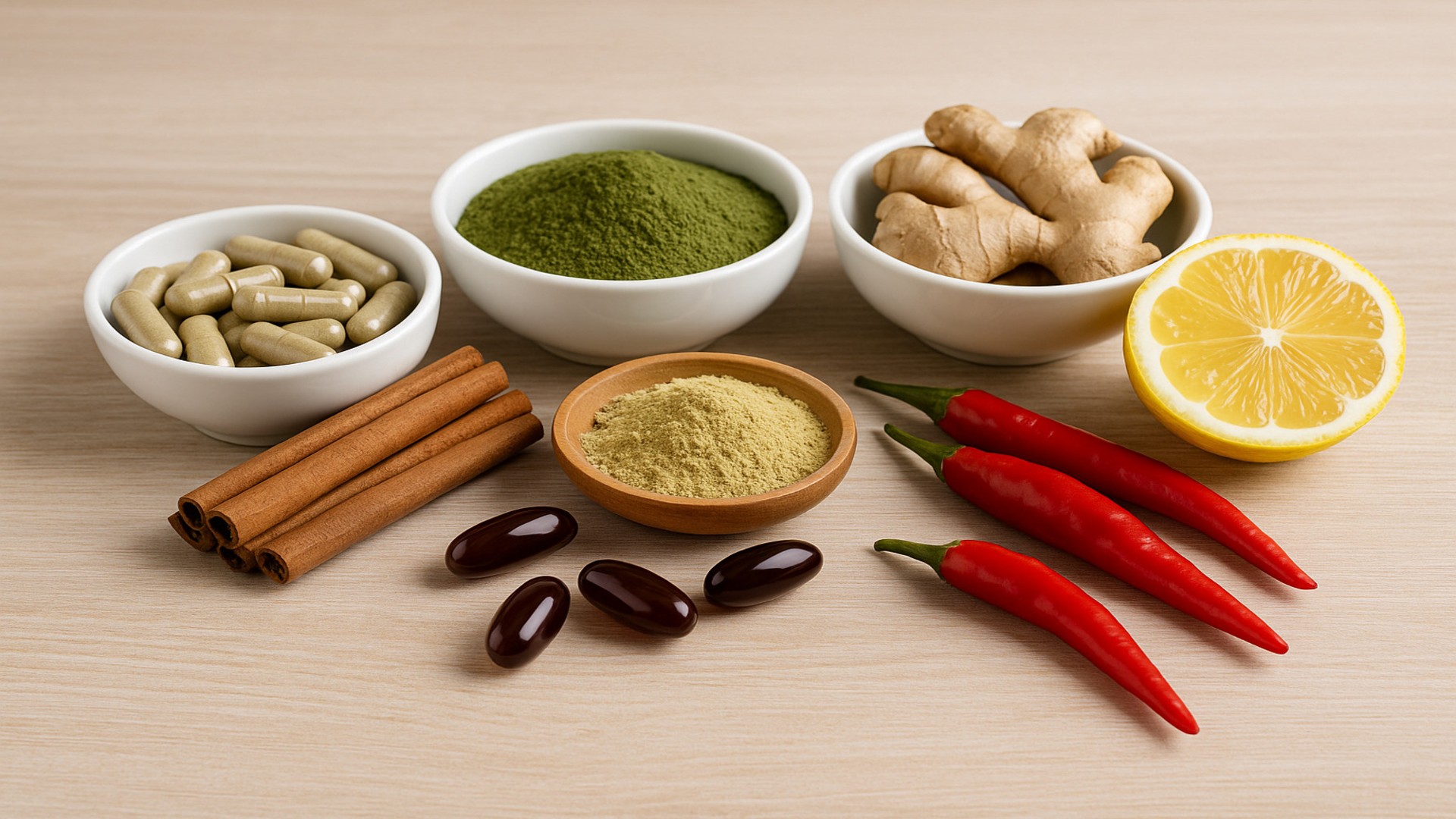
It is difficult for many people to lose weight. Besides healthy eating and sufficient exercise, more and more people are wondering if losing weight with supplements and herbs can provide extra support. In this article, we therefore mention good options that, according to scientific sources, are worth using. However, it is good to remember that supplements and herbs should never be a substitute for a balanced diet or medical advice.
Many supplements and herbs have become popular for weight loss due to their ability to stimulate metabolism. They could also suppress your appetite and promote fat burning. The advantage of losing weight with supplements or herbs is that they are generally simple to take. Sometimes they also contain natural substances found in food or drinks, including caffeine and green tea.
The claims for weight loss herbs and supplements are often big, but the scientific evidence varies. Nevertheless, some remedies have shown positive effects in research. We list them below, including scientific sources.

“After my pregnancy, I struggled to lose the last few kilos, despite healthy eating and regular exercise. Through a friend, I heard about green tea extract and glucomannan. I started researching it and chose supplements from a brand with clear dosage and quality marks. What I particularly noticed was that glucomannan made me less inclined to snack between meals. It gave me that extra push to keep going. I now mainly use green tea extract for the energy boost before exercising. I definitely don’t see it as a miracle cure, but rather as support alongside a healthy lifestyle.“
— Sanne (34), user of natural weight loss supplements
Although herbs like Garcinia cambogia and cinnamon are popular among people who want to lose weight, it’s important to know that research results are not always conclusive. Below, we explain what science has shown so far.
Garcinia cambogia contains hydroxycitric acid (HCA), a substance that could potentially inhibit fat storage. However, a review study in the Journal of Obesity (2011) shows that the weight loss achieved with HCA is generally limited and not clinically significant. The researchers conclude that more research is needed into the safety and long-term effects of this substance.
Cinnamon is regularly researched due to its possible influence on blood sugar levels. A 2013 meta-analysis in the journal Annals of Family Medicine shows that cinnamon supplements can have a small but measurable effect on lowering fasting blood sugar. Nevertheless, the evidence remains mixed, and scientists emphasize that cinnamon should never be seen as a replacement for medical treatment or a balanced diet.
By combining these findings with a healthy lifestyle, herbs like cinnamon or Garcinia cambogia may potentially play a supportive role. However, it remains important to be cautious with supplement use and always consult a doctor or dietitian in case of health complaints or medication use.

It can be tempting to rely solely on supplements and herbs for weight loss. Yet, the reality is that weight loss is only truly possible if you adjust your lifestyle. Firstly, it’s important to eat healthily. For this, a balanced diet with sufficient vegetables, fruit, fiber, and protein is essential. Sufficient exercise is also necessary if you want to lose kilos. Regular physical activity not only stimulates weight loss but also muscle retention and growth.
Additionally, make sure you get enough sleep and don’t experience much stress. Insufficient sleep and chronic stress have a negative impact on hormones that regulate hunger and satiety. This is even more important than using supplements and herbs for weight loss. Nevertheless, they can play a supportive role in weight loss.
Disclaimer: This article is intended for informational purposes only and does not replace medical advice. Always consult a doctor or dietitian before starting supplements or herbs for weight loss, especially if you have health problems or use medications.


Valid from Oct 21 to Nov 2, 2025
Use the code below at checkout to receive 15% off your entire order.
